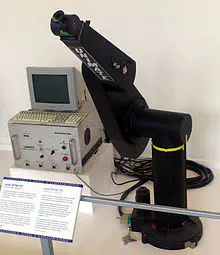Latent Space Encoding for Interpretable Fuzzy Logic Rules in Continuous and Noisy High-Dimensional Spaces
Abstract
This study introduces a general approach for generating fuzzy logic rules in regression tasks with complex, high-dimensional input spaces. The method leverages the power of encoding data into a latent space, where its uniqueness is analyzed to determine whether it merits the distinction of becoming a noteworthy exemplar. The efficacy of the proposed method is showcased through its application in predicting the acceleration of one of the links for the Unimation Puma 560 robot arm, effectively overcoming the challenges posed by non-linearity and noise in the dataset.
Type
Publication
In 2023 International Conference on Fuzzy Systems
